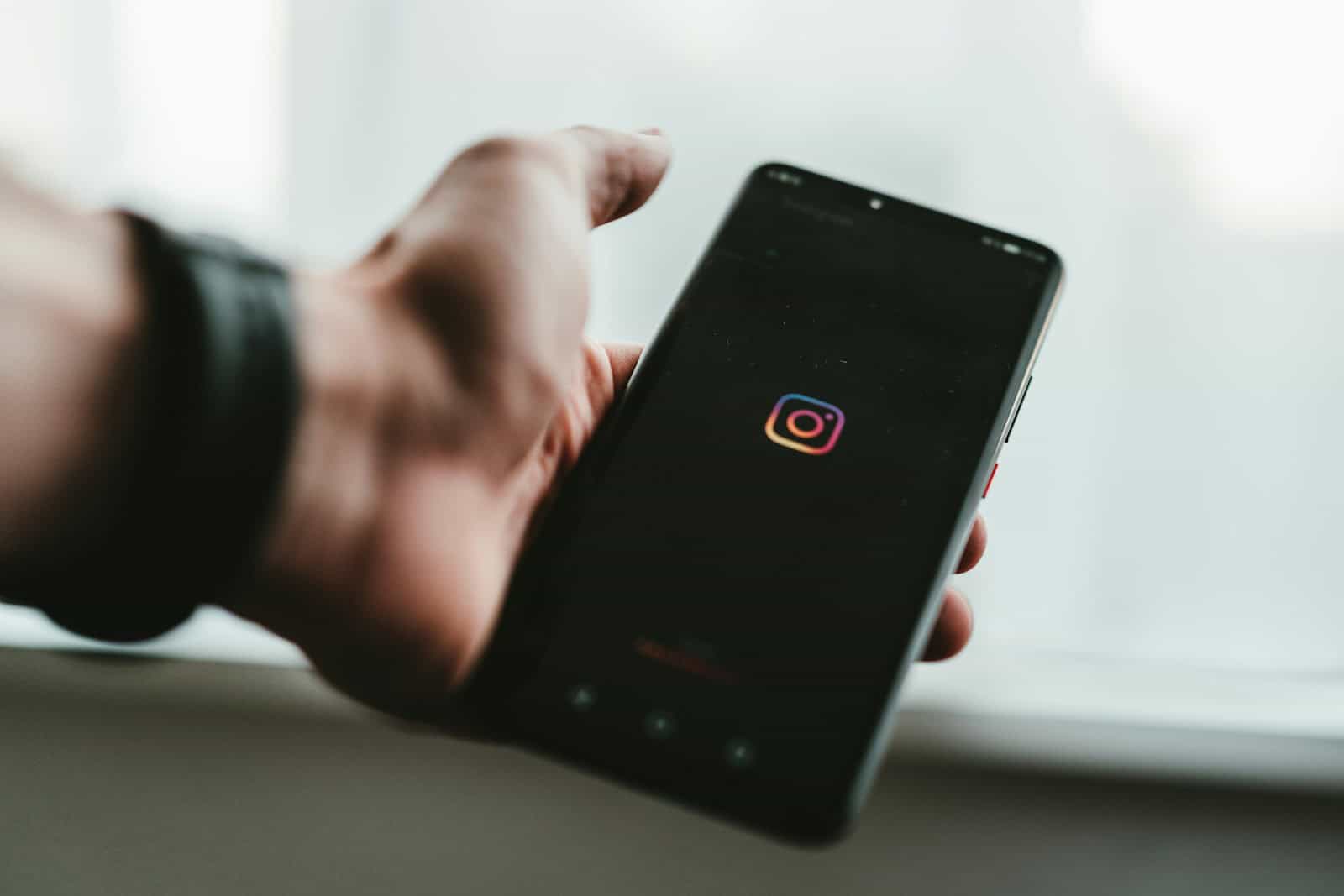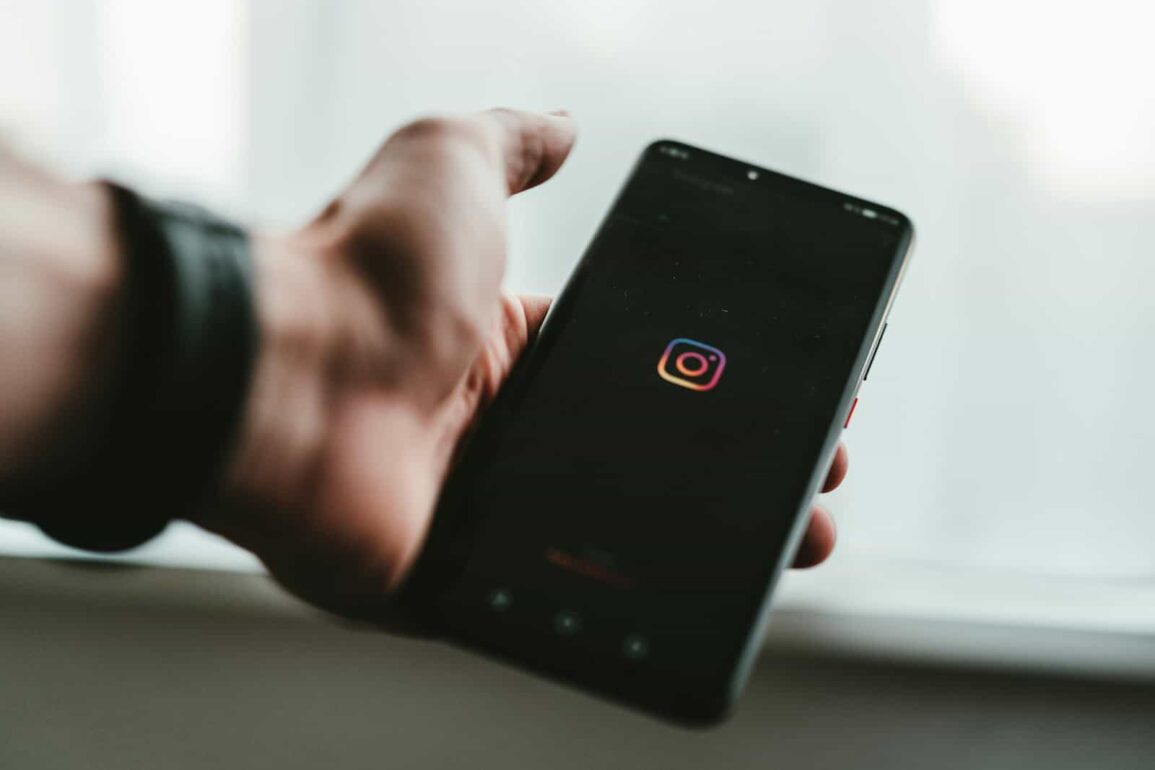Meta is at the center of one of the most consequential antitrust battles in modern tech history—one that could dismantle the very foundation of Mark Zuckerberg’s social media empire. The Federal Trade Commission (FTC) has taken Meta to court, alleging that the company illegally acquired Instagram in 2012 and WhatsApp in 2014 to eliminate emerging rivals and solidify its dominance in the personal social networking space.
At stake is more than just Meta’s ownership of two of the most popular apps in the world. This case has the potential to redefine how U.S. regulators tackle anticompetitive behavior in the tech industry—and could lead to the forced divestiture of both platforms. That would mark the first time a U.S. court has ordered a Big Tech breakup since AT&T in the 1980s.

Inside the FTC’s Case: A “Buy or Bury” Strategy?
The FTC’s core argument is that Meta followed a “buy or bury” playbook. Internal emails and communications obtained during the investigation suggest that Zuckerberg viewed Instagram and WhatsApp as existential threats to Facebook’s dominance and acted swiftly to neutralize them through acquisition rather than competition.
According to the FTC, this not only harmed innovation but also gave Meta outsized control over the data and social interactions of billions of users globally. FTC Chair Lina Khan—a prominent critic of Big Tech’s unchecked growth—has called Meta’s behavior a textbook case of monopolization, arguing that these deals were less about growth and more about suppressing the competition.
Zuckerberg’s Defense: Competition Is Fierce, Not Crushed
In his recent courtroom testimony, Zuckerberg maintained that Meta’s acquisitions were made in good faith and improved user experiences across platforms. He pointed to TikTok, YouTube, and Snapchat as evidence that the market remains competitive and dynamic.
Meta’s legal team has leaned heavily on the argument that social media is not a static market and that the FTC is attempting to rewrite history by challenging acquisitions approved over a decade ago. They also contend that both Instagram and WhatsApp have thrived because of Meta’s resources and integration, not in spite of them.
What’s on the Line for Meta?

If the court rules in favor of the FTC, Meta could be forced to unwind its acquisitions, which would mean spinning off Instagram and WhatsApp into standalone companies. That would dramatically alter Meta’s business, which currently relies heavily on cross-platform ad targeting and user data synergy between its apps.
A breakup would also disrupt Meta’s broader ambitions, from AI development to its metaverse strategy, all of which are deeply integrated with its massive user base across apps. Analysts suggest a forced divestiture could shave off hundreds of billions in market value and introduce uncertainty across the digital advertising sector.
A Trial With Industry-Wide Implications
This case is widely seen as a litmus test for modern antitrust enforcement. Can laws written in the era of railroads and oil barons be applied effectively to algorithm-driven digital platforms? Regulators are betting yes—and they’re hoping to use this case to set a precedent for future crackdowns on other tech giants like Amazon, Apple, and Google.
If the FTC succeeds, it could usher in a new wave of tech regulation, where mergers are scrutinized more aggressively and companies are held accountable not just for market share, but for anti-competitive intent.
Whether Meta walks away intact or fractured, this trial is shaping up to be a defining moment in the ongoing tug-of-war between Big Tech and government regulators.
Breakdown Of The Case
- Plaintiff: Federal Trade Commission (FTC)
- Defendant: Meta (formerly Facebook)
- Key Acquisitions in Question: Instagram (acquired in 2012) and WhatsApp (acquired in 2014)
- FTC Allegations:
- Meta engaged in anticompetitive behavior.
- Acquisitions were part of a “buy or bury” strategy to eliminate potential rivals.
- Meta’s actions solidified its monopoly in the social media market.
- Potential Outcome:
- Forced divestiture of Instagram and WhatsApp from Meta.
- Significant restructuring of Meta’s business.
- Key Evidence:
- Internal communications from Mark Zuckerberg regarding competitive threats.
- Meta’s Defense:
- Robust competition exists from platforms like TikTok and YouTube.
- Acquisitions have benefited users.
- Trial Timeline:
- Expected to be a lengthy legal battle, potentially extending into 2026.
- Industry Impact:
- Landmark antitrust case with major implications for the tech industry.
- Testing the current administrations resolve to regulate big tech.
The FTC’s Allegations:
- The FTC argues that Meta’s acquisitions of Instagram and WhatsApp were anticompetitive, designed to eliminate potential rivals and solidify Meta’s dominance in the social media market.
- They contend that Meta pursued a “buy or bury” strategy, acquiring these platforms rather than competing with them.
The Trial’s Significance:
- This is a landmark antitrust case that could have major implications for the tech industry.
- If the FTC wins, Meta could be forced to divest Instagram and WhatsApp, significantly altering its business structure.
Points of Contention:
- Internal communications from Mark Zuckerberg are being scrutinized, particularly those indicating a desire to neutralize competitive threats.
- Meta argues that it faces robust competition from platforms like TikTok and YouTube, and that the acquisitions have benefited users.
Potential Outcomes:
- The trial could result in a forced breakup of Meta, with Instagram and WhatsApp becoming separate entities.
- The legal battle is expected to be lengthy, potentially extending into 2026.
- The trial is testing the current administrations resolve to regulate big tech.
Key Takeaways
- The FTC’s antitrust case against Meta could force the company to sell Instagram and WhatsApp if successful.
- Mark Zuckerberg is personally defending Meta’s acquisition strategy in court testimony against monopoly allegations.
- The trial’s outcome will establish important precedents for regulating tech giants and digital market competition.
Background of the Antitrust Case
The antitrust case against Meta stems from years of government scrutiny over the company’s growth strategy and market dominance in the social media landscape. Federal regulators have focused particularly on Meta’s acquisition history and its potential impact on market competition.
The Rise of Meta and Its Acquisitions
Facebook, now known as Meta, grew from a college networking site into a global social media empire under Mark Zuckerberg’s leadership. The company’s expansion strategy prominently featured strategic acquisitions of potential competitors.
In 2012, Meta acquired Instagram for approximately $1 billion when the photo-sharing app had just 13 employees and no revenue. This purchase raised few regulatory concerns at the time.
WhatsApp became Meta’s next major acquisition in 2014, with a price tag of $19 billion. These acquisitions transformed Meta into a social media giant controlling multiple major platforms.
Critics argue these purchases allowed Meta to eliminate emerging threats before they could develop into true competitors. The Silicon Valley company has maintained that these acquisitions were legitimate business decisions that improved their products.
The FTC’s Role in Monitoring Big Tech
The Federal Trade Commission serves as America’s primary consumer protection agency with broad authority to enforce antitrust laws. The FTC has increasingly focused on big tech companies’ market power over the past decade.
The commission began investigating Meta nearly six years ago, examining whether its acquisition strategy violated federal antitrust laws. The FTC argues Meta’s purchases of Instagram and WhatsApp were anticompetitive moves specifically designed to eliminate potential competitors before they could challenge Facebook’s dominance.
In court, the FTC has claimed that Meta operates as a monopoly by acquiring rivals rather than competing with them. The case represents one of the most significant antitrust challenges in the tech industry in decades.
The trial, which began on April 14, 2025, could potentially force Meta to divest these major platforms if the court sides with the FTC’s arguments.
Implications of a Forced Divestiture
If the FTC wins its case, Meta could be ordered to sell Instagram and WhatsApp. This would dramatically reshape both the company and the broader social media landscape in ways that would affect users, competitors, and investors.
Potential Impact on Meta’s Structure
A forced divestiture would significantly alter Meta’s business model and revenue streams. The company might lose a substantial portion of its income, as Instagram and WhatsApp represent major revenue sources. Without these platforms, Meta would need to rely more heavily on Facebook and its Reality Labs division.
Meta’s market value could decrease substantially. The company has integrated many of its advertising and messaging functions across platforms, and separating them would require complex technical changes.
The company would also face challenges rebuilding its growth strategy. Meta spent years developing what executives call the “family of apps” approach, where each platform serves different user needs while sharing backend resources.
Investors would likely experience volatility as markets adjust to a smaller, less diversified Meta competing in a more fragmented landscape.
Effects on the Social Media Landscape
A breakup would reshape competition in social media markets. New owners for Instagram and WhatsApp might introduce different privacy policies, features, and business models, potentially benefiting users through increased innovation.
Competitors like TikTok, YouTube, and messaging platforms such as iMessage might face more direct competition from independently operated Instagram and WhatsApp services.
The social media market could become more dynamic with three separate companies (Facebook, Instagram, and WhatsApp) competing instead of one integrated Meta ecosystem.
Advertisers would need to adapt their strategies to work with separate platforms rather than Meta’s unified advertising system. This might increase costs but could also provide more options.
The divestiture could create opportunities for smaller platforms to gain market share as the giants reorganize. Users might benefit from more choices and potentially better privacy protections.
The Trial Process and Legal Arguments
The Meta antitrust trial opened on April 14, 2025, with both sides presenting strong positions in federal court. The legal battle centers on whether Meta illegally maintained a monopoly in personal social networking.
Meta’s Defense Strategies
Meta’s legal team has built their defense around several key arguments. Mark Zuckerberg took the stand to personally defend the company’s business practices, emphasizing that acquisitions of Instagram and WhatsApp were legitimate business decisions rather than monopolistic moves.
The defense contends that Meta faces substantial competition in the social media landscape. They argue that the company’s success stems from innovation and investment, not anti-competitive behavior.
Meta’s lawyers have pointed to the existence of other popular platforms as evidence against monopoly claims. They maintain that users have multiple options for social networking services, undermining the FTC’s core argument about market dominance.
The FTC’s Accusations and Evidence
The Federal Trade Commission has accused Meta of illegally maintaining its personal social networking monopoly through strategic acquisitions of potential competitors. In opening arguments, the FTC told the federal judge that Meta “abused its power” in the marketplace.
The FTC’s case focuses on Meta’s purchases of Instagram and WhatsApp, claiming these acquisitions eliminated emerging threats to Meta’s dominance. Prosecutors have presented internal communications suggesting Meta identified these companies as competitive threats.
Evidence includes documents related to Meta’s advertising business and revenue models. The trial is the third major tech antitrust lawsuit to reach court in the past two years, highlighting increased regulatory scrutiny of big tech companies.
Broader Considerations and Industry Reactions
The Meta antitrust trial has sparked widespread debate about competition in tech markets and the future of digital platforms. The case raises fundamental questions about where to draw the line between successful growth and anticompetitive behavior.
Potential Precedents for Other Tech Companies
The FTC’s case against Meta represents the third major tech antitrust lawsuit to reach trial in the past two years. This suggests a broader pattern of increased regulatory scrutiny toward Big Tech. Companies like Amazon and Google are closely monitoring the proceedings.
If the court rules against Meta, it could establish new legal standards for what constitutes monopolistic behavior in digital markets. This might force other tech giants to reconsider their acquisition strategies and business models.
The case builds on regulatory momentum that began during the Trump administration and continues under the current government. Regulators appear increasingly willing to challenge the dominance of American technology companies.
Impact on Innovation and Consumer Choices
Critics of the FTC argue that forcing Meta to divest Instagram and WhatsApp could disrupt services that billions of users rely on daily. The integration of these platforms has created conveniences many consumers now take for granted.
Supporters of the case contend that breaking up Meta could spark new innovation in social media. They suggest that more competition might lead to better privacy practices and more diverse options for users of mobile devices.
The trial in Washington focuses heavily on Meta’s advertising business. Any changes to this model could reshape how companies reach consumers across social media platforms.
Industry experts point out that competition concerns must be balanced against America’s interest in maintaining technological leadership globally.
Frequently Asked Questions
The ongoing antitrust trial between Meta and the FTC raises several critical questions about the tech giant’s future and the broader implications for the technology sector. Key considerations include potential operational changes, market impacts, and consequences for users.
What are the implications of the FTC’s antitrust lawsuit for Meta’s future operations?
If the FTC succeeds in its case against Meta, the company could face significant operational restructuring. The most dramatic outcome would be forced divestiture of Instagram and WhatsApp, which would fundamentally alter Meta’s business model.
This would require Meta to rebuild its revenue streams and growth strategy, as Instagram and WhatsApp represent major components of its current ecosystem. The company would need to innovate independently rather than integrating acquired technologies.
Meta might face new restrictions on future acquisitions, limiting its ability to expand through purchasing competitors.
How might the outcome of the antitrust trial affect Meta’s market value and stakeholder interests?
A ruling requiring divestiture could substantially impact Meta’s market valuation. Investors may react negatively to the potential loss of two major platforms that drive significant user engagement and advertising revenue.
Meta shareholders could experience volatility as the market reprices the company based on a smaller portfolio of products and services. The uncertainty during the trial period itself is likely causing some investor hesitation.
On the other hand, if Meta successfully defends its acquisitions, investor confidence might strengthen, potentially leading to positive market performance.
What are the precedents for antitrust cases in the technology sector that could influence the case against Meta?
The Microsoft antitrust case of the late 1990s represents a significant precedent. While Microsoft wasn’t broken up, the case established important boundaries for dominant tech companies.
The FTC’s argument that Meta made “killer acquisitions” to prevent competition aligns with growing regulatory concerns about preemptive acquisitions in tech. This approach has gathered momentum in recent years.
Recent international cases, particularly in the European Union, have established precedents for regulating large technology platforms that may influence U.S. court perspectives.
What defense strategies is Meta employing in the antitrust trial against the FTC’s allegations?
Meta CEO Mark Zuckerberg has taken the stand to dispute the government’s case, likely arguing that the acquisitions weren’t anti-competitive but rather beneficial to consumers and the platforms’ growth.
The company appears to be emphasizing the competitive nature of the social media landscape, pointing to newer platforms that have emerged despite Meta’s acquisitions. This argument aims to counter claims that Meta has monopolized personal social networks.
Meta may also highlight the substantial investments it made to grow Instagram and WhatsApp beyond their capabilities as independent companies.
How could the regulatory landscape shift for tech companies if Meta is required to divest Instagram and WhatsApp?
A successful FTC case would likely embolden regulators to pursue similar actions against other technology giants. This could create a more aggressive enforcement environment across the tech sector.
The precedent could establish new standards for evaluating mergers and acquisitions in technology, particularly regarding potential competition. Companies might face stricter scrutiny when acquiring startups or adjacent businesses.
Lawmakers might feel encouraged to introduce new legislation specifically addressing digital markets and competition, creating more defined boundaries for tech company growth.
What are the potential ramifications for users and advertisers if Meta is compelled to sell its acquisitions?
Users might experience changes in platform functionality as the integrated features across Meta’s apps would likely be separated. This could affect how people connect across these platforms.
Privacy policies and data sharing practices would necessarily change, potentially giving users more control but also requiring new consent processes for existing accounts.
Advertisers would need to adapt to a fragmented landscape, potentially dealing with separate ad platforms rather than Meta’s unified advertising system. This could increase complexity but might also create more competitive pricing.
This post was originally published on this site be sure to check out more of their content








